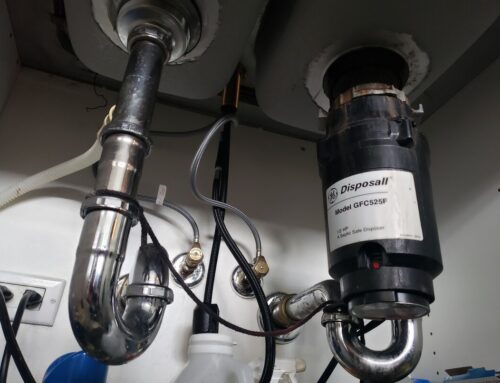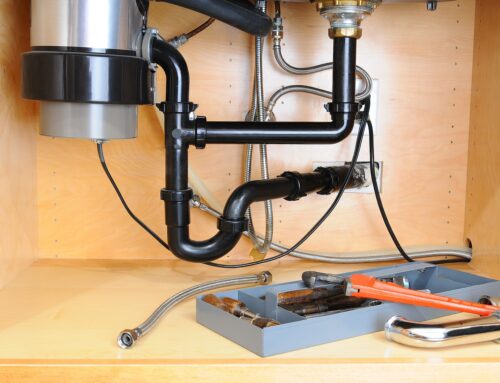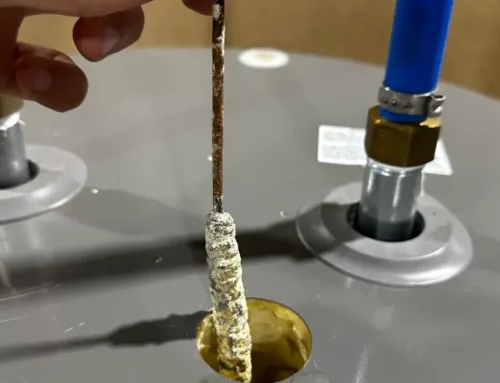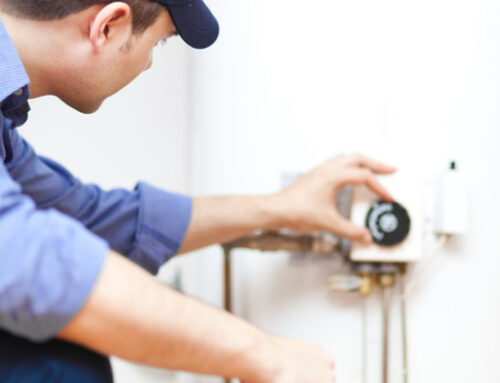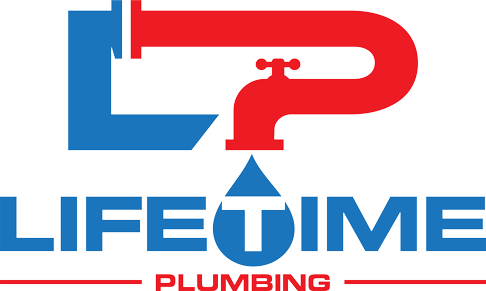Table of Contents
4 Signs You May Have a Sewer Line Clog
A sewer line clog happens when there is a blockage or obstruction in the pipes that carry wastewater away from your home. This can cause serious problems such as sewer backups, slow drains, foul odors, and potential health hazards. In this article, we will discuss the top 5 signs that indicate you may have a sewer line clog. Understanding these signs can help you take prompt action to avoid costly Sewer Line Repairs and potential health hazards.
Regular maintenance is crucial for keeping your sewer line healthy. Homeowners can maintain their sewer lines in between professional inspections by being mindful of what they flush down the toilet or pour down the drains. Taking proactive measures like using drain strainers and avoiding flushing non-biodegradable items can significantly reduce the risk of a sewer line clog.
Remember, detecting sewer line issues early can save you from extensive damage and costly repairs.
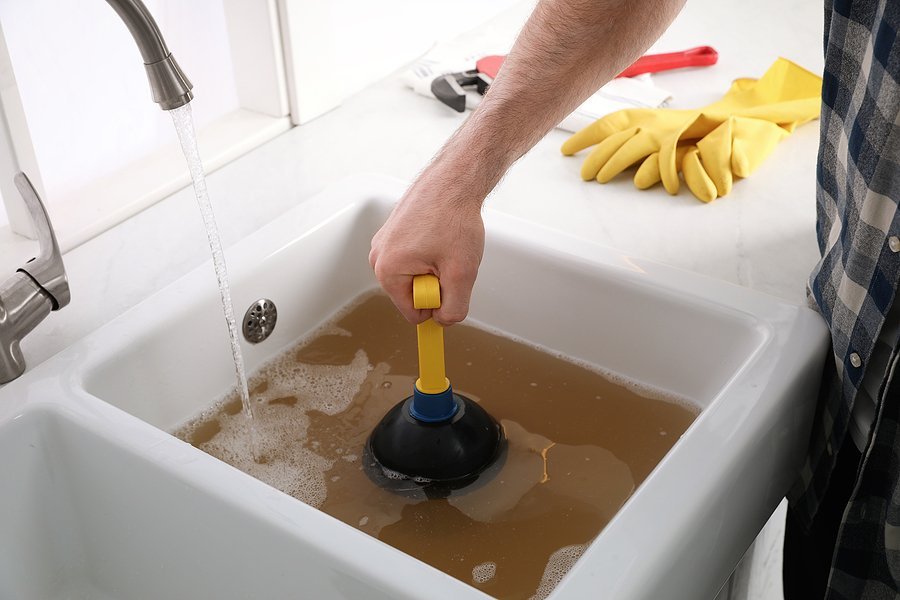
1. Backed-Up Drains
A sewer line clog can lead to a range of issues within your home, and one of the most noticeable signs is backed-up drains. When the main sewer line is blocked, wastewater has nowhere to go, causing it to back up into various drains around the house. This can result in unpleasant and unhygienic overflows that need immediate attention.
Symptoms to Look Out For
Specific symptoms of backed-up drains can manifest in different areas of your home:
- Toilets: If flushing the toilet leads to water backing up or rising to the rim, it’s a clear indication of a potential sewer line issue. You may want to consider seeking professional assistance as plumbers often advise against using chemical drain cleaners like Drano due to their harmful effects on plumbing systems.
- Sinks and Showers: Water may take longer than usual to drain, and you might notice gurgling sounds as it struggles to flow through the pipes.
DIY Solutions and Professional Assistance
While minor drain backups can sometimes be alleviated with DIY methods such as using a plunger or a plumbing snake, it’s crucial to recognize when the issue extends beyond individual drains. If you suspect a main sewer line issue, it’s best to seek professional plumbers to help you promptly.
Calling in a professional plumber to clear the main sewer line is crucial for addressing the root cause of the problem. Our Plumbers at Lifetime Plumbing have the expertise and specialized equipment to diagnose and resolve complex sewer line issues effectively.
Taking Action
Don’t ignore backed-up drains; it’s essential to address them promptly to prevent further damage and health hazards. Contacting our plumbing service for fast and reliable sewer line cleaning services in Chicago can help you tackle this issue effectively.
Remember that timely intervention can minimize the impact of a sewer line clog on your home and prevent more extensive repairs down the line.
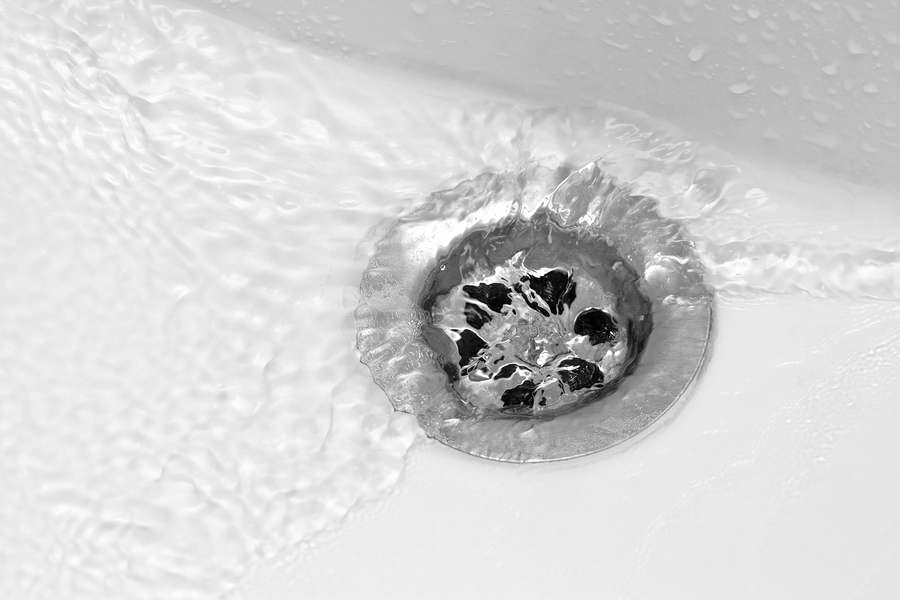
2. Slow Drains and Gurgling Noises
Signs 2 and 3 often go hand in hand. Slow drains can happen when there’s a partial blockage in the sewer line, while gurgling noises may mean that air pockets are formingdue to restricted flow.
Identifying Slow Drains
When you have a clogged sewer line, you may notice this issue in different parts of your home:
- Water takes longer to empty from sinks, tubs, or showers.
- You hear strange sounds coming from the plumbing system.
Slow drains can be caused by various factors other than sewer line clogs. For example, hair buildup in bathroom drains is a common cause of slow drains. If you only have one slow drain in your home, it’s more likely to be a localized issue rather than a problem with the main sewer line.
Understanding Gurgling Noises
Gurgling noises may indicate air pockets forming due to restricted flow in the sewer line. This can happen when there’s a clog or blockage preventing smooth passage of wastewater. In fact, some homeowners have reported situations where their bath gurgles when the sink is emptied due to such issues.
Action Steps for Slow Drains and Gurgling Noises
Here’s what you can do if you’re experiencing slow drains or hearing gurgling noises:
- Single Slow Drain: If only one drain is slow to empty, it’s likely a localized issue. You can try using a plunger or drain snake to clear the clog.
- Multiple Slow Drains: If multiple drains throughout your home are slow to drain, it’s a strong indication that there’s a clog in the main sewer line. In such cases, it’s necessary to rule out non-sewer-related issues before taking any action. Some homeowners have even experienced situations where water not draining and after Drano rose back up due to this type of blockage.
- Avoid Chemical Drain Cleaners: Using chemical drain cleaners as a temporary fix for slow drains is not recommended. These cleaners can corrode your pipes over time and cause further damage. Additionally, they often provide only temporary relief and may not effectively clear the clog in your sewer line.
- Call a Professional: If you’re unsure about the cause of the slow drains or if DIY methods don’t solve the problem, it’s best to call a professional plumber for further inspection.
To prevent further complications and potential damage to your plumbing system, it’s essential to address slow drains and gurgling noises promptly. Calling our professional plumbers will ensure that the main sewer line is thoroughly inspected and cleared if necessary.
3. Foul Odors
Sign 4 is more than just a nuisance; it can indicate a serious problem in your sewer line. If you’ve been noticing strange smells in your home, particularly foul sewage odors, it could be a clear sign of a sewer line clog. These odors can arise in various living spaces of your home, such as bathrooms, kitchens, or even outdoors near the cleanout pipe or in the yard.
The presence of sewer odors should never be ignored, as they can pose potential health risks to you and your family. Prolonged exposure to sewer gases, such as hydrogen sulfide and methane, can cause headaches, dizziness, respiratory issues, and even nausea. It’s crucial to take immediate action if you detect these unpleasant odors.
Why You Shouldn’t Ignore Foul Odors
- Sewer odors are a possible sign of a clogged sewer line.
- Prolonged exposure to sewer gases can lead to health problems.
- Prompt action is necessary to address the issue and ensure a safe living environment.
The Importance of Professional Help
To effectively address the issue and eliminate the foul odors, it’s recommended to reach out to a professional plumber who specializes in sewer line inspections and repairs. Our plumbers at Lifetime Plumbing have the necessary expertise and specialized equipment to locate the source of the odor accurately. This may include using smoke tests or video inspections to identify any cracks, leaks, or blockages in your sewer line.
In some cases, the source of the odor may not be directly related to a clogged sewer line but could still be a plumbing issue. Our licensed plumbers will be able to assess the situation thoroughly and rule out any non-sewer-related problems that may require attention.
Tips for Prevention
To minimize the risk of foul odors caused by sewer line clogs or other plumbing issues:
- Proper ventilation is essential. Make sure that your bathrooms and kitchen are adequately ventilated with exhaust fans or windows that allow fresh air circulation.
- Avoid blocking floor drains or cleanout pipes to prevent any buildup of gases within your home.
- Regularly inspect and maintain your plumbing system to catch any potential issues early on.
Remember that attempting DIY solutions for sewage odor problems can be risky and may not address the underlying issue effectively. It’s always best to consult with a professional plumber who can provide the appropriate solutions and ensure a safe and healthy living environment for you and your family.
4. Sewage Backup in Unusual Places
Sign 4 can be particularly alarming as it involves sewage coming up through drains or toilets in areas like the basement or ground floor of your home. This is a clear indication that you may have a severe clog in your main sewer line, and if not addressed promptly, it can lead to extensive damage and costly repairs.
When there is a blockage in the main sewer line, wastewater has nowhere to go and can start to back up into your home. This can result in standing sewage in unusual places such as your basement or even overflow from your floor drain. It’s important not to ignore this issue, as it poses serious health risks and can cause significant damage to your property.
Why Sewage Backup in Unusual Places Is a Problem
Having sewage backup in your basement is not only unpleasant but also a potential hazard. The standing sewage can contaminate the area, creating an unsanitary environment that requires immediate attention. Attempting to clean up the mess on your own without addressing the underlying sewer line clog can lead to further contamination and health risks.
The Importance of Professional Help
To ensure proper cleanup and prevent further damage, it is crucial to have a professional plumber assess the situation before attempting any cleanup efforts. Our licensed plumbers have the expertise and specialized equipment needed to locate and address the source of the clog effectively.
Why DIY Solutions Are Not Recommended
Contamination risks are one of the main reasons why DIY solutions are not recommended for sewage backup in unusual places. Without proper knowledge and equipment, you may inadvertently spread bacteria and viruses throughout your home. Additionally, attempting to remove standing sewage without addressing the underlying issue can result in recurring backups and potential structural damage.
How a Professional Plumber Can Help
By calling our professional plumbers, you can ensure that the clog is properly cleared, preventing future backups and minimizing the risk of contamination. We will be able to use tools such as sewer cameras to identify the cause of the blockage and take appropriate measures to resolve it.
Prioritize Safety and Health
Remember, when faced with sewage backup in unusual places, it’s crucial to prioritize your safety and the health of your household.
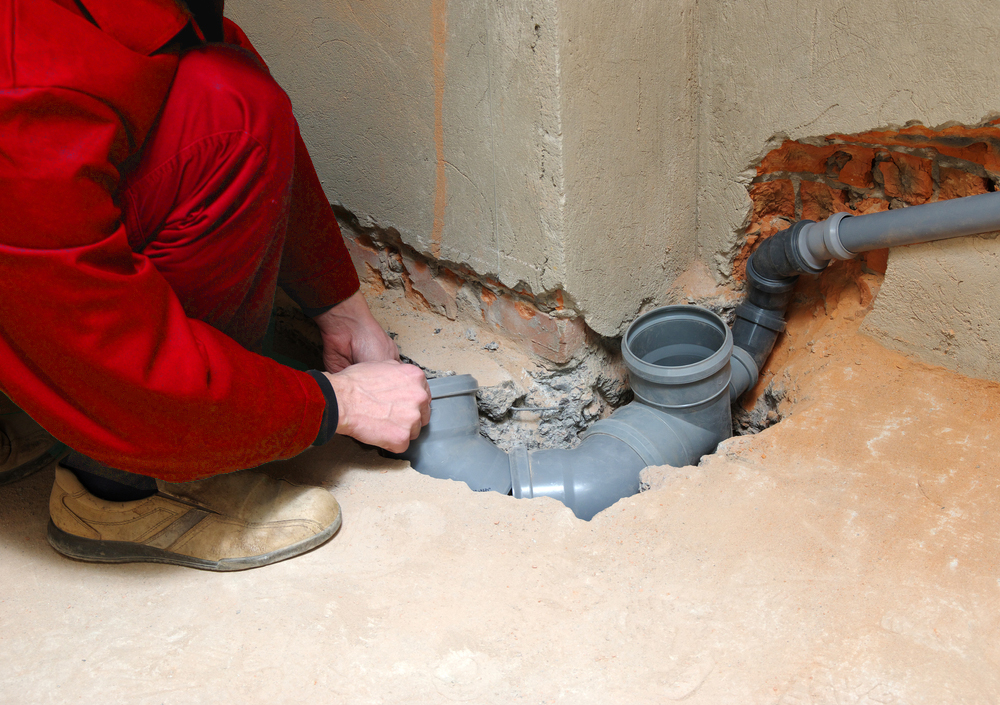
Sewer Line Clog: Preventive Measures and Professional Maintenance Services
Sewer line maintenance is crucial in preventing clogs and ensuring the proper functioning of your plumbing system. Regular maintenance can help identify potential issues early on, saving you from costly repairs and inconveniences. Here are some preventive measures and professional maintenance services that can help keep your sewer line healthy:
1. Regular Inspections
Hiring a licensed plumbing technician for regular inspections of your sewer line is essential. Professionals plumbers have the expertise and equipment to thoroughly assess the condition of your sewer line, identifying any signs of blockages or damage. By catching problems early, you can address them before they escalate into major issues.
2. Professional Cleaning
Periodic professional cleaning of your sewer line can help remove any buildup of debris, grease, or other materials that could lead to clogs. High-pressure drain cleaning and other advanced techniques can effectively clear out your sewer line, improving its flow and preventing blockages.
3. Mindful Practices
Encourage homeowners to be mindful of what they flush down the toilet and pour down the drains. Avoid flushing non-biodegradable items, grease, oil, or large food particles that could contribute to clogs. Additionally, using hair catchers in shower and bathtub drains can help prevent hair accumulation, reducing the likelihood of blockages.
RELATED: Find out more about the best toilet paper for your septic tank.
4 Signs You May Have a Sewer Line Clog Conclusion
It’s crucial to be vigilant about sewer line clogs and take immediate action if any of the signs discussed in the article are present.
Don’t wait for a sewer line clog to occur! Contact Lifetime Plumbing to schedule a professional inspection and ensure that your sewer system is in top condition.

